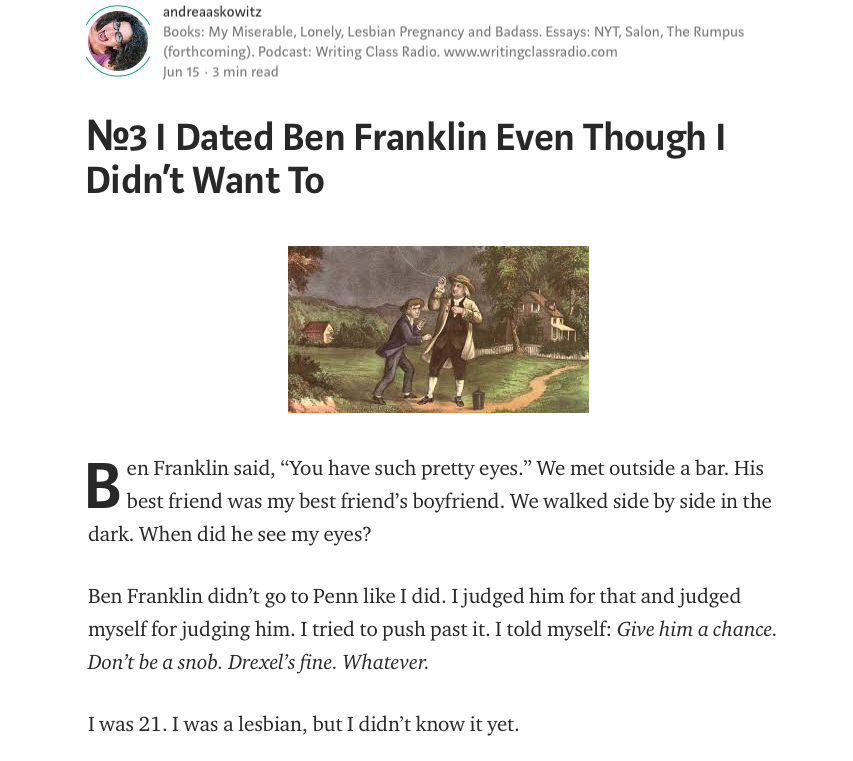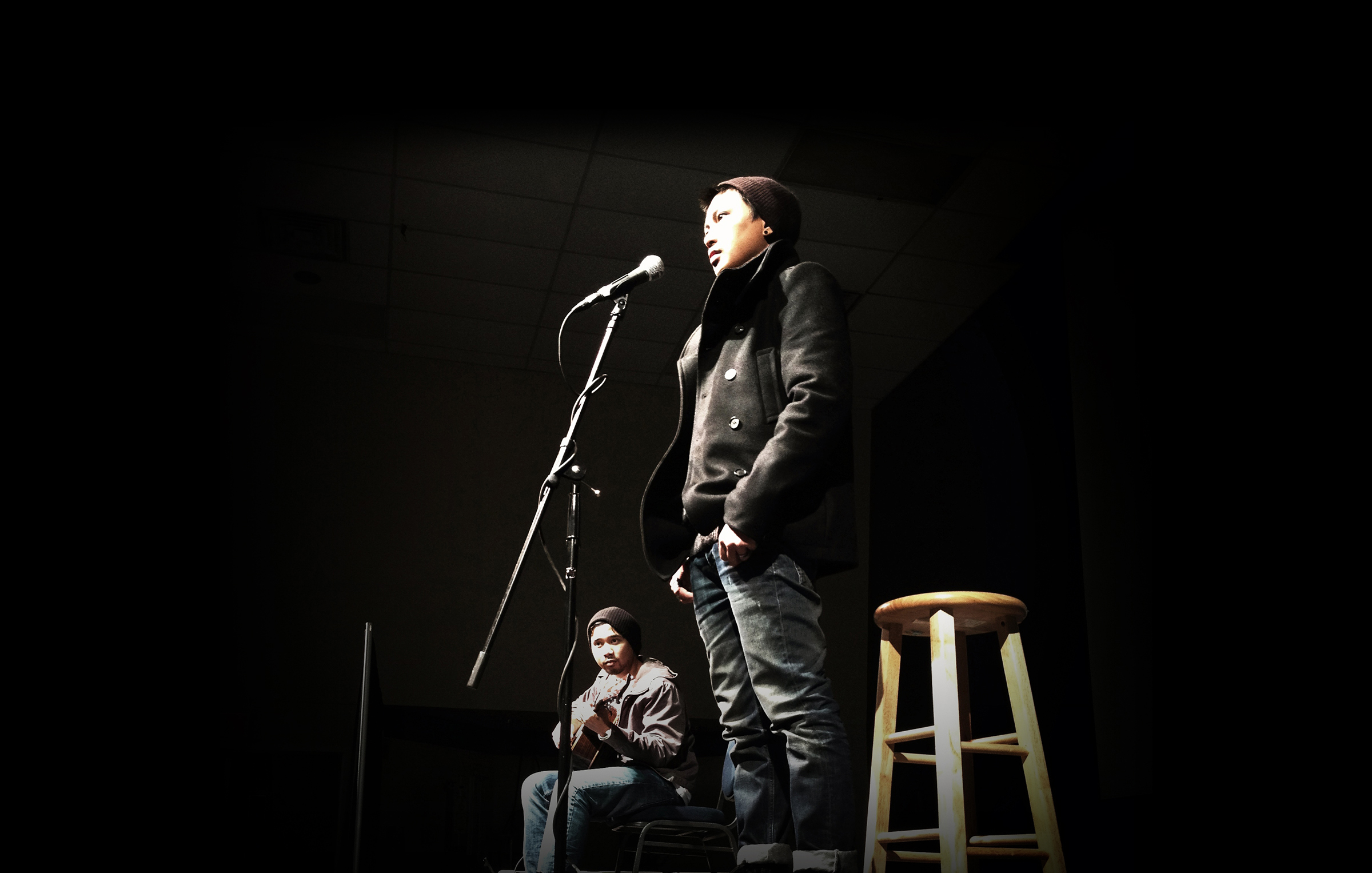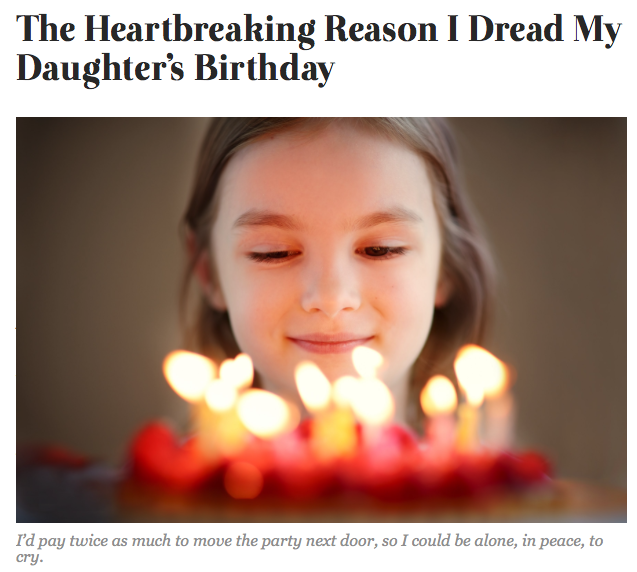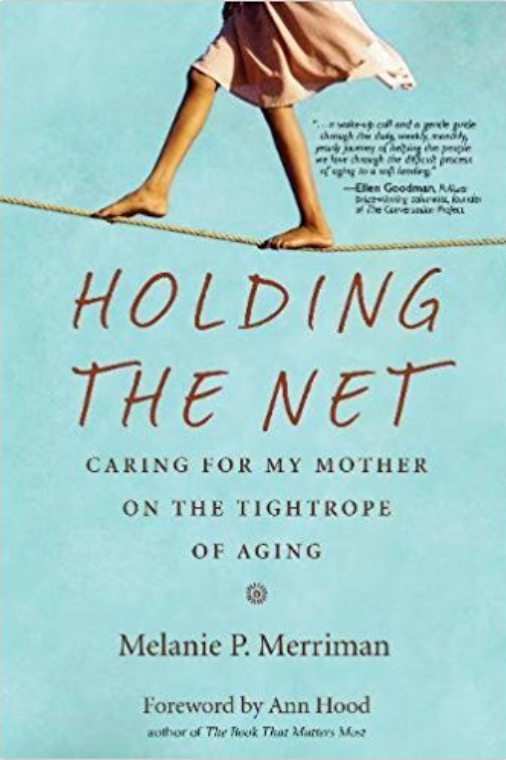Writing/Performance Class THIS SATURDAY
/The world feels so ugly right now. Everything on the news is sickening. But there's a way to cope and that is to create art. No one does it better than Asia Samson of the Asia Project, who is coming to Miami to teach us how to write and perform.
You're invited to take a day and make something good. All levels. Space is limited. Sign up here!
No.3 of Andrea's Weekly Writing Challenge: I Went Too Far
/To read more, CLICK HERE
Dear Person Says Write Your Way Into Understanding
/Journaling helps me remember how varied my own experiences are. It allows me to avoid becoming swallowed by the things that suck, believing them to be permanent states.
Read MoreHost Allison Langer Gets Story in The Washington Post→
/I teach writing in prison. During one class, things got real — even for me
Read MoreMan in Prison for Life
/But then one day, the unthinkable happened. The cops came back, but this time they took me.
Read MoreHost Allison Langer Gets Story in The Washington Post→
/I teach writing in prison. During one class, things got real — even for me.
Read MoreDear Person...Cheating & Hiding, a Letter About Phones
/Maya Kieffer is a Writing Class Radio podcast student, bookseller, writing teacher in prison and the creator of Dear Person, an advice blog. Below, an excerpt from her blog.
Dear Person Week Four
Dear Person wants YOUR letter!!!
Dear Person,
I am a 35 year old woman and have been married to my husband for six years. We have two young boys, and our relationship has been strained for about a year. Lately I’ve become suspicious of my husband’s friendship with a coworker.
He started mentioning her name more and more this year, and one night I couldn’t help myself.
I looked through his text messages and saw two messages from the co-worker saying “Here’s my number for when you’re lonely :)” and “You know what they say about things people do when they’re drinking…”
There was no reply from my husband and these were the only texts from this woman. I don’t know if he’s cheating on me, but I have so many questions. Do I tell him I read his text messages? Should I ask if he’s cheating? I’m embarrassed that I read them at all but I want to confront him about this woman.
Sincerely,
Ashamed of Snooping
Dear Ashamed,
I feel pretty strongly about this. You must tell him. Yes, invading the privacy of someone you’ve committed to partnering with is a destructive move, but your mistake doesn’t negate your husband’s behavior. You cannot un-pick up the phone and un-read those text messages, so there’s no reason to dwell on the wrongness of the act itself. You’ve done it already. Shame will not serve you half as well as honesty.
I am not speaking from a place of judgement, Ashamed. Far from it. I can clearly remember a former me, hunched over an ex-lover’s phone, thumbs shaking and breath shallow as I clicked through his private conversations.
One morning (because I usually did this in the morning, while he was taking a shower) I found something I’d been looking for. It was a confirmation of a needling suspicion: my boyfriend had indeed been hiding something from me.
The striking thing about that morning is not what I found or that I found it, but how I felt once I did: relieved.
Relieved because the distance between us had a recognizable shape, something tangible to blame. Relieved that I was right, he’d stopped touching me for a reason, he was not just “stressed about work” — and relieved because I didn’t have to continue pretending to be satisfied in my relationship. It was, for me, the excuse I thought I needed to blow shit up.
Click to read full Dear Person's full response.
Dear Person...The Raging Feminist Inside Me.
/Maya Kieffer is a Writing Class Radio podcast student, bookseller, writing teacher in prison and the creator of Dear Person, an advice blog. Below, an excerpt from her blog.
Dear Person Week 3
Dear Person,
I’m just a woman seeking a birth control method that isn’t going to torture me and destroy my body. I’ve been on different birth control pills since I was 16 years old; at first for acne and then to “help” with ovarian cysts. In February, I decided to swap my pills for a hormonal IUD. It was okay for the first 3 months, but now I’m getting cysts again. I’m in so much pain and in and out of the ER constantly. If I take it out, ovulation will cause cysts, but if I leave it in, the IUD will cause cysts. I can go back on the pill, but it makes me moody and heightens my anxiety.
I truly don’t think enough research has been done on birth control methods and the female body in general. Is there such a thing as a doctor who knows what they’re talking about in this regard? The raging feminist inside me is furious with the fact that men don’t have to deal with this shit. I’m feeling totally lost and I don’t want to spend the rest of my life hopping from symptom to symptom, all for the sake of pregnancy prevention. Part of me just wants to say, “fuck it,” and go off everything and just deal if I start getting cysts again.
I realize you’re not a doctor (as far as I know), but I wondered if you had any advice on how to navigate this under-researched and over-medicated territory.
Thanks.
-Painfully Frustrated
Dear Frustrated,
I am so sorry to hear about how much pain you’re in, dear. Some people have bodies that allow them to move through the world easily and without pain, and others simply don’t. To make matters worse, many of us in the “don’t” category happen to have uteruses. I’m not going to tell you that your suffering is noble or that you’ll learn valuable lessons from it. There’s enough of that rhetoric floating around already, and most of it is bullshit.
You’re right that I am not a doctor, but I think the raging feminist in me can at least sit on the couch and talk with your feminist for a little while, and maybe afterward we’ll both feel a little less angry and a little more hopeful.
Like most teenagers, Frustrated, I spent a significant amount of time watching and imitating people I thought were cooler than me. At sixteen I wasn’t really a person at all, I was more like a wire figure covered in a patchwork quilt of my heroes’ habits. Patti Smith wore black? I wore black. James Joyce wrote his manuscripts in blue crayon? I wrote in pen because I didn’t know who the fuck James Joyce was until college.
Sorry, I couldn’t resist. Anyway. . .
Click to read full Dear Person's full response.
Dear Person...Working Your Shit Out. For Free
/Maya Kieffer is a Writing Class Radio student, bookseller, writing teacher in prison and the creator of Dear Person, an advice blog. Below, an excerpt from her blog.
Dear Person Week Two: In This One, We Bring Up Nazis.
Dear Person,
I recently moved to a beach town and needed to make some money while I set up my own business, so I applied to work at a hotel on the beach front. I have years of experience and got the job offer on the first interview. They also told me they were seasonal and closed during the fall. It sounded perfect for my needs.
The job is great, I can see the beach from my desk and my coworkers are nice to me. The issue is that my manager and the operating owners are extremely racist. I should say before we continue that I am white. I work with people who are African American and some maids who are Mexican.
The people in management make comments like, “The maintenance man does a good job, when he does his job. He can’t help it though, because he is black.” If they suspect the majority of our guests for the day will be black they will say stupid things like, “Today’s forecast: 69 degrees and the sky is Black.”
They are also diehard Fox News watchers and love Trump but can’t name a policy they support. Lately, they have been coming to me because of the Facebook hearings because they don’t understand and I “keep up with these things.” That makes me so upset. They are being intentionally obtuse and just internalizing what hate mongers tell them.
I need to make it to October so I can launch my business. How can I handle this in the best way?
-Staying Silent
Dear Staying Silent,
I suspect your question is not actually about how to remain at this job until October. I say this because you already know how to stay: continue showing up to the hotel and completing your paperwork with a sealed mouth. I also suspect you’ve written in hoping that someone might respond with absolution in the form of “Do what you gotta do to keep paying the bills!”
But Silent, I truly believe there is something else buried within your letter. The fact that these ugly (and, honestly, straight up idiotic) comments have stayed with you — and that they’ve become so heavy you needed to dump them out — tells me there’s a decent-sized chunk of you genuinely seeking change. This is the part of you that I’d like to speak to.
It's Not Black & White
/By Maya Kieffer, Writing Class Radio student and creator of Dear Person, an advice blog.
When I hear the word black, the first word I think of is lives and then matter, which is good in a way. I’m glad this movement was successful enough to be the first thing I think of, but at the same time I’m so resistant to being advertised to that I hate how my thoughts go to a slogan. That’s sort of the point of a slogan though, right? To be memorable.
The other day a guy came into the bookstore — a really hot black guy in a Black Lives Matter t-shirt — and he asked me if we had any history books about slavery. The weird thing is, we don’t. The weirder thing is that I didn’t say, “We don’t.” Instead, I said, “We don’t, but we do have this,” and I showed him a copy of a book called Things That Make White People Uncomfortable.
This was a stupid joke, a bad move considering I’d never met this guy and couldn’t guess whether or not he’d be offended, but I’m trying this thing where I say and do things without over-analyzing them. Normally, I’d consider the joke and then retreat down into some frightening cavern in my brain where I try and assess if this is a good or a bad idea. But my hair looked good that day, I was wearing my favorite shoes, and like I said I’m practicing being bolder. So I made the joke.
He didn’t laugh. But he didn’t look angry, either. He looked confused, as if I, a white person, seriously thought this book was a viable substitute for a history of racism in the US. I tried to save myself and said, “Sorry, bad joke.” His puzzled face softened into a half-smile, but I’m pretty sure it was more out of pity than amusement.
He said, “Thanks” and walked out the door.
Click to read Maya's advice blog, Dear Person
Writing Class Radio Podcast Brings You Renowned Poet Asia Samson from The Asia Project
/Read Andrea's full interview with Asia Sampson on his poetry, writing process and spoken word performance.
ASIA: I AM A WRITER FIRST. I will always be a writer, storyteller. I perform my poems. It just adds this other element to it, right? So, that's the goal. I want people to have an experience, and radio will do that to you. Movies will do that to you. That's always been the goal.
FIRST, I READ THE SPACE, see what they need. Recently, I locked in on two people that were listening. And then I gave them the show because I always say I do the people who are there, not the people who aren't. We get caught up in chasing the people who don't care, rather than the people who matter, right? And that applies in life anywhere, right? That we try to chase the opinions of people that don't really matter rather than the people who do. And so, by the end of this show, two of the librarians that actually worked there kind of gravitated to the floor. The barista who was serving coffee in the back stopped what she was doing and was watching and, before I knew it there was about five people that were listening and....crying. And then the other people were still on their laptops not caring, or giving a shit....laughter.
ANDREA: So, element number 1 is the actual story, the words?
ASIA: Words, yeh. It’s the writing and the words and everything the imagery all have to be, you know, sharp. You can perform the hell out of a horrible poem and it still will be a horrible poem. Or you can perform an amazingly written poem horribly, and it will still sound pretty good, right?
All my poems always start with sound and tone for me. Like, ok I'm gonna write about my sister's death... How did I want that to sound like? Right? Or, I'm gonna write about my love, my love for Jess.. And the angle I'm gonna come at it, with how do I want that to sound like first? So a lot of times in my head I already know how it's going to sound like. I may not have the words, but I know how it's going to sound like. Part two is, what's the take-away, for me? What's the message I'm giving out here?
ANDREA: When you say that you know how it's gonna sound, does that mean that you know how it's gonna sound in terms of a song?
ASIA: Sound as in...yeah, see...So, you may not listen to a lot of spoken-word poetry, I mean at least as much as I have, right? You start to notice poets have a certain sound to their poems. Now, a lot of poets pretty much are one-trick. Right, like no matter what poem they talk about, it's going to sound....Whether they talk about sex, whether they're talking about violence, whether they're talking about death, it all sounds the same... It's just different words.
So for me... there's a certain, like if you think songs to ya. I mean you can look at it in the way of songs, some songs have just put you in a mood, right. So, I always know the sound of it, the tone of it, right. I don't know the exact sound. I don't know the, the chords, or the melody, I don't even know the words. I just know I want it to sound reflective, or I want it to sound mundane, or I want it to sound, you know, intimate and vulnerable. Or I want it to sound hilarious and upbeat. That's how I already know, the tone of it, where it's gonna be.
ANDREA: So you go for a mood in a way. You go for a sound, a mood and a sound.
ASIA: Mood and sound yeah. So I go for the mood. I also like to call it "tone." More so than anything, 'cause there's a tone to it. There's a feeling behind it. And then from there, I know, I have to figure out, ok, but what's the message, what's the take-away, what do I want to say in this poem? And sometimes I may not even know that. Sometimes the poem will reveal that. I've had situations where I've written poems that I had no idea what I'm saying here, and then all of a sudden it just reveals itself as I'm writing it.
ANDREA: That's the process of editing... exactly…right, so you're in the same place, but you start with the mood or the sound, you say tone, and then you start writing and then sometimes you figure it out as you go...cool. That's art, man.
ASIA: Yeah, and you know, most times I know the beginning and the end. That, for sure, I usually always know, and then I fill in the middle. Like, I get from point A to point B. I do, I know where I'm gonna begin, I know where I'm gonna end. Usually that happens because I have a line pop in my head. So, the funny thing is you caught it. You were the one that liked it. When we did the last poem. The Desks are not bullet-proof poem, the line about my son was the first thing that popped up to me. That was the first thing that inspired that poem.
ANDREA: The faking sleep moment?
ASIA: Yeah. Like I walked in on my son yeah, faking sleep. Yeah because the night, a couple of nights before that, I went...the funny story about this poem, and I wanna go, I wanna talk about this because we're discussing the writing and the stuff....
So..the poem started when I was putting my son to bed and, uh, he was in the room and I was like, oh let me go into my room, do whatever I have to do and I'll go back and check in on him. And I can still hear him playing, and I'm like, ok I need to go in there and tell him he needs to go to sleep. So I walk in there...He's four. So, he's in the room and you know I can hear him still talking. I can hear him laying down and kind of playing and talking, so I'm like, let me go in there, because I've told him it's time to go to bed. So I go in there and, now he's lying down. And I look and, his eyes were closed but his eyes were closed in a way that you could tell he's forcing them closed? You know what I mean?
He's not a good enough liar to try to....and I was like, about to call him out on it, and I started thinking like, what if, you know...for some reason that just connected me to the schools shooting. It just connected me to all this stuff, like, I wonder if kids are pretending to do the same thing, uh, when there's a gun man coming into the room. So that moment right there, that intimate moment sparked the poem. But now, I didn't write the poem yet, because in my head I'm like, ah....
There's this thing about, this unwritten...like, rule with poets to never write the hot topic poem, right? Because you know in a couple of months everyone will have that same hot topic poem. Right? If someone writes about Black Lives Matter, you can pretty much guarantee in about two months everyone will have a Black Lives Matter poem. If someone's gonna write about school shooting, in a couple of months everybody's gonna have a poem of school shootings. And if you look at all my work I never have any hot-topic poem, I would rather have poems that are timeless. I would rather have poems that are gonna be relevant no matter what. I don't wanna write the one poem that everyone's writing about right now.
ASIA: Um, but then one day I was driving home....
ANDREA: But I'm really glad you did write this one. And even right now when you just described your son in bed with his eyes squeezed shut in this obvious way, I got chills. Because of where it took you....
ASIA: Yeah. And so on my drive, I had a three-hour drive home from Tallahassee, and as I'm driving home words just started spilling out of my mouth for this poem. Right? That never happens to me. Ever. Usually it's me sitting down, it's a process, it's scratching out things, and erasing and adding and editing and kind of molding. For some reason on this one from beginning to end it just started coming out of my mouth, which is something that just doesn't' happen to me.
ANDREA: Did you record it? Because you were driving. Like, how did you capture it?
ASIA: No, so I pulled off onto a rest area, pulled up my laptop and just started driving. And I was there for maybe 45 minutes. And I had the whole poem pretty much written out. And then I just went home and did the editing.
ANDREA: Now all our listeners are gonna hate you, but that's ok.
ASIA: No! But that never happens to me. That doesn't. It's one of those.... I came home and cleaned it up and then it was done.
ANDREA: So that one didn't start with the tone?
ASIA: It did. The tone was that certain. That silent, quiet, feeling of my son sleeping in bed was the tone. Because if you think about it that's probably how it felt in classrooms when you know there's a gunman in the hallway shooting people up, and you know inside the classroom people are....like outside the classroom people are running for their lives and screaming, and guns are being fired off, but then if you think about it inside the classroom people, it was probably, people were being as quiet as they could, because they're trying to pretend that they're dead, or pretend that they're not in there, right?
So that's the tone I wanted to capture, I didn't wanna capture the screaming. I could've made this poem go the other way with, you know, guns being shot off and people are running and screaming for their lives. That could've been the tone for that, but instead I wanted to focus on the tone of the people that were in the classroom and are trying to hide from the gunman or are trying to pretend that they're dead. That was the quiet I wanted for this poem. And that's what I wanted for the whole piece.
Click to hear Asia perform his new poem Desks Are Not Bulletproof and his interview on Episode 44: Voices Carry.
ANDREA: So talk to me about how you then work out the delivery. Like when you're gonna tell the poem, do you, consciously pace yourself in a certain way, speed up, slow down, get louder. Or is that, has that become instinct? But then I wanna know how you do it for yourself, and then how do you teach that, and do you teach it?
ASIA: Ok, so, um....Funny story but when I was in junior high I tried to be a break dancer.
ANDREA: you wanted to be a break dancer?
ASIA: No, I was a break dancer in my junior high school.
ANDREA: Oh...cool
ASIA: Pop blocking. There was a guy who was teaching me how to dance that way and he goes, "Give yourselves a VCR where you can speed up, slow down, rewind, ff, go regular pace" because it makes the dance interesting. For some reason I took that with me when I started performing spoken words poetry.
ANDREA: That's awesome!
ASIA: Yeah, you know, weird? So I always thought of myself as a VCR. Again, I told you, now I have the tone, now I have the words, but I really don't even know how it's gonna be performed. I know that I want certain breaks here and there so that this line gets accentuated when I'm performing it, but usually that gets worked out in practice. So, the process is I have the poem. I go to an open mic or I go somewhere for a show and I test out the poem by reading it. Right? Just so I can get a feel of it on stage. But I know I wanna read it and test it out and see people's vibe to specific lines that I liked, but it will be very choppy. And then when I decide, ok, I wanna put this in my arsenal, then I learn it. I put the paper away, and then I perform it for the first time without paper. Every time I perform it for the first time without paper, I can guarantee you I will mess it up. It's become tradition. Like, if I don't mess up a poem that first time, then it's not considered in my arsenal.
ANDREA: If you don't mess it up you don't use it?
ASIA: No...I do. I always mess it up. I have never had a time when it didn't get messed up. Because you could practice it all day, but as soon as people are staring at you it becomes a whole different environment.
ANDREA: If you stumble, do you then edit? Do you then sort of rework the lines maybe?
ASIA: No....because that'll confuse me even more. That just means that I just don't know that part as well. I've already committed to the words. It's already there. I'm not like one of these poets who edit. Like, some of them are good at that, they edit on the fly, ok that's not gonna work there...
ANDREA: I would imagine, many poets and I do this when I'm performing. If I'm performing a line and I bungle it, then I'm realizing that there's a moment, like I need to rework those lines maybe. But, ok that's not what you do.
ASIA: No....well, I will if when I read it to them the first few times...when I've been reading the poem I can get a feel of oh well that line did not hit as much as it should. That, before I put it to memory I will do the re-write. But what I'm saying is, once I commit it to memory, that means I've already done all the re-writes I could. Right?
You know there's a thing that someone was telling me, that poems are never finished. They're just abandoned. Right? And so, I learned at that point after the editing and reading it to people ok, I can leave this. This is where I'm gonna leave it now. This is where It's going to stay.
So then I'll put it to memory. I'll mess it up a couple of times. Then the first time I say it without any hiccups, it's still not where I want all the pitches, the crescendos or anything like that. It doesn't do that to me yet. It's just, I know the poem. Matter of fact, that Bullet Proof poem, I've been performing it at colleges for about two weeks now, and I'm still not at that place, right? It's still...I can say it without messing up, but it's still not at the crescendos where I'd like it. I'm still not in that pocket where I'd like it.
ANDREA: And once you get it to that place, it, you perform it the same every time?
ASIA: No...so that's what I'm about to get to. Here's the magical thing, after you perform something a couple of times, I want it to get to a place where my mouth can literally spit the poem without me even thinking of it anymore, and now my mind instead is thinking this part's coming up, bring this word up, this part's coming up, drop a pause here, this part's coming up, extend this word. My mind starts messing with the poem now, like freestyling it in my head basically. Drop a word here, add an inflection there. My mind is thinking that now because the words are coming up automatically out of my mouth. I'm not consciously thinking about the words anymore. It becomes a magical place where the poem becomes such a part of you, because you've performed it so many times, it's become such a part of you that you can literally lose yourself in the poem. Like, you can lose yourself in the performance, because you're not even thinking about the words anymore. You're not conscious of what's coming up next. Your mind is just playing it like a symphony....
That's the part that I teach. To get to the point where the poem becomes so automatic that you can play it like a symphony without ever thinking about the words anymore. People don't get to that point because they're too worried about, I need to perform a new poem next week, I'm going to an open mic, I've performed this poem too many times. And, I can't do that same poem, I'm gonna write a new poem. You never let the poem get to that place. You never let the poem get to that place where it becomes such a part of you that it just comes out automatically.
ANDREA: You're trusting yourself. That's when you're feeling the audience, that's when you're feeling the space like we talked at the beginning. That's where you're reacting to, you're reacting to your own emotions in that moment probably....
ASIA: That's right. So, especially when I'm doing, like...a hilarious poem. Like, the 90s poem. I had such a great time doing that poem. Because people are laughing and then I can mess with them in that space. I can drop a line here and I can stop there. Like, you know, the second Lip Service I did when I did the poem about sex and about losing my virginity. I was having a great time, because I knew where people were gonna laugh, and I could add a pause. I knew the poem well enough that I could let it do it's thing.
ANDREA: Do you ever step out of the poem and ad-lip off the cuff words?
ASIA: All the time with comedy poems. I don't do that with my more serious poems because it kind of ruins the tone and the moment that I'm putting them in. But with comedy poems, sometimes I'll stop and then people will be laughing and I'll be like "yeah, you know what I'm talking about" and I'll call out the audience or whatever. And then go right back into the poem and continue on. That's if I know the poem very well.
ANDREA: Beautiful.... uh, and I've seen you do it. And I'm like, daaang you are so in the moment. Ught.
ASIA: Yeah, that's it. That's the word. Being in the moment. Because a poem...The words should be the last thing I need to be worried about. I already wrote it. The poem's already written. You'll already hear the words. I don't need to worry about them.
ANDREA: It's already in you.
ASIA: I don't need to worry about the actual words in a performance. I just need to worry about how I'm delivering it at that point.
ANDREA: So how long does it take, like on average, from start to finish, until....and how many times you tell it out loud? What's the whole process until it's in you? Until you can play it like a symphony?
ASIA: Depends on how many shows I have.... So, when I was living in South Florida, there was an open mic every night of the week. I would perform at all these open mic's for two weeks straight and in about two weeks I've already got it.
ANDREA: So is it really 14 nights in a row?
ASIA: Well, yeah, I guess it all depends on the poem too and how excited I am to really learn the poem
ANDREA: Yeah....but like ok, so you would perform it 14 times out loud in front of people before it was in you.
ASIA: Pretty much, yeah. Constantly, because 14 times could be...there could be a gap between the 3rd and the 5th time, of like, a week that I didn't get to perform it, so I didn't get a chance to really learn it in that week.
ANDREA: It's stage time...that's what you're saying. People need stage time.
ASIA: It is. It's stage time. And then that. That comes with experience.
You know what? You know what I do in my workshop? I make somebody get up in the class and perform a poem that they already know by heart, that they don't have to think about. They start performing it, and I conduct them. I'll lift my hands up to make them raise their voice, and then I'll put my hands up to make them stop right there, then I'll bring my hands down to make them bring it down...and they'll play with it with me and at the end they'll be like "oh, wow....that does sound better." I first have them perform it the way they would. And then I come in and I conduct it. You can ask any of the people I've taught, "Yeah, Asia does that, he'll sit there and move you through your poem to make the inflections sound the way it does." And then they're like "oh, I never even thought about doing it that way." So it's all hands-on. The writing stuff that I teach, what I'm talking about writing and talking about storytelling in writing, writing words. I do, you know the basic formulas, and things like that, but the performance stuff, there is no lecture, there is no just do this. No, it's hands-on. You just come on, and through that practice, they can see what it is I'm doing and how I'm moving them through it a certain way.
ANDREA: Absolutely......yay! Ok, two more questions... I wanna know is there anything that bugs you when you're listening to spoken word?
ASIA: It doesn't bug me when somebody has one note. I mean, their voice is their voice, they'll learn eventually. I think what bugs me most is that right now there's a lot of people who are... Poets are very known for censoring one another and you would think that in an art form where you're not supposed to censor sometimes, there's become poetry gatekeepers of what you can and can't say.
ANDREA: Because of political correctness...
ASIA: Yeah, and that didn't happen ten years ago when I first started. It's been recent. I think a lot of us are a lot more sensitive these days to the things that offend us, and the things that we should or shouldn't say. And I can agree with those things. Um, but there's also become poetry gatekeepers with a sense of, "now you're appropriating." Like if I did my poem about my sister becoming transgender, I could get flagged in the poetry community saying that that's not my story to tell. And I’m like, why not? It's my sister. It's not like I'm trying to gain points here. You know what I mean? It's a story that my sister can't even tell maybe, you know.
And there's a lot of misogyny and patriarchy and stuff like that in poetry nowadays, too, which is why a lot of people are bouncing back. But I also try to say, "yeah, but don't lose sight of who your allies are." Don't alienate your allies. Right? And a lot of times a lot of people do do that. So, there's...the word appropriations been floating around the poetry community lately. The word...I don't know, theres' a lot of words floating around now about what is right and what's wrong. But...
And I think spoken word is finally coming into it's own, to a sense, where this things haven't been figured out before, so I think people are learning as they go so, again, different conversation, different time. So that's one thing that bothers me. Well, the other thing that bothers me, when the poet that's performing isn't, is more, they care more about what they sound like and their own ego, than providing what the space needs. Right? Like, "Oh I'm too good to perform for three people. Like I'm not doing this show, because there's three people, you guys should've done your job and packed this place." Like, there’s three people. Those three people came to see you. Go, let them, give them what you know they came out for. So what?
ASIA: I'm about to do a comedy show for the guy who was on the Daily Show. These are people that are gonna heckle me. These guys are here for comedy, not poetry. And, man I had them in the palm of my hand. It was the best feelin ever, right?
ASIA's definition of VOICE: I think voice is the inner person, inside you, trying to speak to the world. I think it's everything that you are, it's allowing yourself to be vulnerable enough to open the gates of your heart and let out whatever it is in there trying to speak.
For me that's voice, right? The thoughts that are in your head that are swirling in there that are talking to you constantly. And you're allowing it to come out into the world in the way that it was talking to you inside. So I think sometimes there's that...You just, inside of you, inside of your mind, inside of your heart there's this message, this voice, this person trying to talk. You, your actual physical body, your physical mouth, that's just the conduit that that voice talks through. You're the mouthpiece really. You're really just the mouthpiece. So a lot of times the disconnect happens when the voice inside you is not being translated properly by the mouthpiece. And so you don't hear, like I will hear poets sometime. I don't think that was how you heard it in your head, was it? No, I just can't seem to get it out that way. I'm like yeah, because you haven't allowed the poem, you haven't allowed yourself to get to know the poem.
It's almost like your heart gave you a speech to read and you are reading it out loud but you haven’t rehearsed it you haven’t let it be a part of you so you can't speak it out as vibrantly as the voice was. That's why. So you need to learn how to know that poem. You need to learn that poem. It needs to become a part of you to the point where you know it so well that now you can actually....deliver it with the same kind of voice that was talking to you inside...I think that's voice. And, for me voice is the most important thing, it says what you stand for, it says what you are, what you believe...And it's the story that's inside you that wants to come out. I've had voice since I was a kid. That was the only thing I had.
I didn't really play sports, I didn't really, you know I wasn't like the popular kid when it came to athletics or anything like that. I was decently smart, but i wasn't the smartest kid in the class either. But what I did have was this ability to tell stories. I would learn jokes and I would tell them at school and it made people laugh and I was like oh this is great. Or I would tell another kind of story to make people think and I'm like, oh there's power here. So for me voice became my number one asset. That's the important thing for me....
Click here to listen to Episode 44: Voices Carry where Asia performs his poem, Desks Are Not Bulletproof.
Surprising Good Feelings About Social Media
/I know that sharing stories is the way to feel connected. I learned this almost 20 years ago in my very first memoir writing class taught by Terri Silverman. If you live in LA, TAKE HER WRITING CLASS! I told an embarrassing story and instead of feeling weird or isolated, I felt totally supported and understood. That's why I keep telling my stories. That's why I work so hard to get other people to tell their stories. Because sharing stories really helps in this crazy life.
Yesterday, Allison and I started blasting free videos on social media, which are meant to get people writing. We have a 12-step free program, which we hope will leave people hungry for more. And if that happens, we have a comprehensive, 3-part video class for SALE here on our website. The class is $20 per 20 minute video or $50 for all three. So many people have told me they want to take my writing class. We offer classes open to the public three times a year. Class meets three Saturdays for $175. This video class gives you all you'd learn in our writing class for a fraction of the cost and time from the safety of your own home. So here is your chance.
Social media is annoying for the most part, BUT the coolest thing is happening. People that I haven't seen in a million years and who live far away and who I love are sharing and buying our videos. I'm sure plenty of you are rolling your eyes or will be by day 12. But for now, thank you for being so cool and open to sharing stories and sharing our videos about how to write them better.
--Andrea
Graduation In Prison
/Yesterday, I attended my second Exchange for Change graduation, which was more like a performance given by the guys who’ve completed one of a number of writing classes, mine included. This experience was different than my first one. Getting through security at Dade Correctional Institution was not scary, like before. I guided my friends through the process—hand over ID, take off shoes, walk through metal detector, wait behind locked door, wait again behind another locked door. They were nervous about visiting a prison for the first time.
This time, when I entered the visiting area, I knew the inmates would be wearing their prison blues and roaming freely around the room. I knew they would be kind, and welcoming and polite, because they are my friends now. I know their names and their stories. Twenty-five of these 200 or so men have taken my memoir classes. We write with vulnerability and honesty. Me included.
“Be careful,” friends said when I first started volunteering in prison. They told me scary stories of people they’d read about who tried to help prisoners and were murdered later. I understood my friends’ fear, but after my first visit to DCI, I knew my friends needed to meet these men in order to change their perception of the people we incarcerate.
Mike Gonzalez, Allen Dorsey “One Draft Rev” and Eduardo Martinez “E” were the first to greet us. I introduced my Writing Class Radio co-producers, Andrea Askowitz, Virginia Lora and Misha Mehrel to the men I have come to value and route for. “Misha just told a story on our last episode,” I told Mike. “Misha, Mike’s story was the one we aired two episodes ago.” It was so nice to connect the men—my outside friends to my inside friends.
I spend every Tuesday from 11-1pm inside DCI teaching memoir writing as a facilitator for Exchange for Change. I encourage the men to write their true, personal stories. Mike says he now hears my writing tips even when he writes letters to his family. Like what? What is this story about? Ground the reader…who, what, when, where? Mike told me that his sister listens to our podcast and that because of it, she feels closer to him. Barnett said that telling his story has made him feel more open and free. Willie said that he finally understands how to get his thoughts on paper. Willie’s thoughts tell of a past filled with discrimination, neglect, violence and regret. Some of Willie’s stories tell of childhood love. It’s obvious to me that Willie could have gone in a different direction if another path was available to him. It wasn’t.
E was the MC. He is talented and was as humble and as funny as ever. E spoke without notes and performed his piece without flubbing a cue. Genius was the word tossed around by the audience post performance. Genius doesn’t do him justice. His words, his voice made me cry. Not just because his words about mistakes and youth and life in prison touched me, but because his talent is real and valuable and is wasted in here, for life, without parole for something that happened when he was 19 years old. Remember when you were 19 and malleable and stupid and thoughtless?
Andrea met Luis Aracena and Juan Esquivel, two of my inside students whose stories I’ve shared with her. Stories we intend to share on the podcast. Luis stood strong while he performed Second Chances. I know from his stories in class that Luis served this country then lost his mind and his fight with cocaine. This country put him in prison when he needed some rehab and some love and a second chance. Juan’s poem spoke of a freedom only available in his dreams. ‘You see, I have not held my sons Juan Jr. and Roger for 19 years…I wake up, and all that I see is the cold, concrete coffin that envelops me. My life was like a sinking ship headed to the bottom of the sea, where no one would find me. Buried under the waves that shattered my dreams until Exchange for Change rescued me. Since then, I fly away on the wings of my pen, flying free through my writings and my songs.’ Juan ended his story with a song:
Dear Butterfly, fly away.
You don’t have to live inside the prison gate.
Dear Butterfly, fly away.
Share your beauty with a free heart today.
On the way out Juan handed me a note that read, “Allison, thank you for caring the way that you do! May your beauty continue to fly into the hearts of those whom society has cast away!” I shake Juan’s hand, smile and sneak a hug. Hugging is a no no in prison. But I sneak a hug with Barnett and Willie and E because they are my friends and I need a hug as much as they do.
I rode home with Andrea, my friend and vice chairman of Exchange for Change, Sonesh Chainani and his mom, Sheila. “How can we get these guys out of here?” Sheila asked. Sonesh has a law degree from Columbia but doesn’t actively practice law. Sonesh shook his head at his mom. Andrea was disgusted as Sonesh explained the three strikes rule, minimum mandatories, the appeals process. I was frustrated. I just kept saying, What a waste. What a waste. Andrea and I agreed that we need to get their stories out. The world has to know these men, understand them, so we can convince lawmakers to end these long prison terms. We need to motivate our friends to give to organizations that are making a difference in the lives of underprivileged children who need education and love and the option for a successful path in life. Groups like The Seed School and Educate Tomorrow help inner city and foster care children. Groups like Leap and Exchange for Change help prisoners move through life in a positive way as better human beings. Podcasts like Planted in Miami highlight powerful work the South Florida community is doing.
Before I met the men at DCI, fear and ignorance said, “Lock them up for life.” Now that I know more, I refuse to let fear win. If you want to make a difference, please go to http://www.exchange-for-change.org/donate/and make a donation. Any amount will help.
Show Notes for Episode 39: Get Out of Your Way and Write
/
On today’s episode we’re talking about getting out of our own way when writing a story. The writing process starts with getting the truth on paper. We write about situations or problems we’re dealing with or have dealt with, things we’re still trying to understand or resolve. The goal is getting to the reason we’re writing the story and what the story is really about.
Andrea is a huge believer in writing and rewriting. That’s her process. A first draft is usually shit. Then the second draft all the way to the 222 draft, is usually still shit, but those drafts are critical for telling the story well. But with all this writing and rewriting, we can get in our own way.
In this episode, you'll hear student Misha Mehrel’s story Bad Breath. Misha brought this piece to class a couple of weeks ago and it needed very little editing. You will also hear an interview with Misha about his writing process. Misha was wary of writing about his father’s cancer diagnosis. What he did instead was start by writing about physical problems that had been bothering him. He wrote graphically and intimately about his breath and bowel movements, which served to free him up to write about his dad.
Two prompt ideas to help you, the listener, loosen up. Body Odor or Menstrual Blood. See where that takes you.
Listen to other stories by Misha in Episode 36 about Hurricane Irma (https://soundcloud.com/writing-class-radio/episode-36-hurricanes-and-stories-define-us-since-the-beginning-of-time) and another in Episode 16: Comfort Zone where he told a story about his hairy ass.
Writing Class Radio is a podcast that brings you true, personal stories written in an actual memoir writing class and a little instruction on how to write your own stories.
Writing Class Radio is co-hosted by student Allison Langer (www.allisonlanger.com) and teacher Andrea Askowitz (www.andreaaskowitz.com). This podcast is equal parts heart and art. By heart, we mean getting to the truth and by art, we mean the craft of writing.
Writing Class Radio is produced by Virginia Lora, Andrea Askowitz and Allison Langer. We are sponsored by and recorded at the University of Miami School of Communication.
Our fall writing contest is officially on! The prompt is Secret Pleasure. Deadline is Feb. 14, 2017. Details at writingclassradio.com.
Theme music by Ari Herstand. Additional music by Kevin Myles WIlson
Taryn Southern and Podington Bear. You can find all our music on our website.
Please support our 20+2 campaign. Give $20 and get two people to subscribe. Our goal is 2,000 new listeners and $20,000 by the end of the year. Please help us reach our goal. Please go to writingclassradio.com and hit the 20+2 button.
There’s more writing class on our website (www.writingclassradio.com), twitter (@wrtgclassradio) and Facebook.
There’s no better way to understand ourselves and each other than by writing and sharing our stories. Everyone has a story. What’s yours?
Show Notes for Episode 38: Write Better by Mimicking the Masters
/On Episode 38 we’re talking about mimicking the masters the way you’d imagine a painting class in Paris goes to the Louvre and practices painting like Leonardo de Vinci. We think it’s worth copying a method that works because we know it worked in the past. Learn the rules before breaking the rules.
In this episode, you'll hear stories that mimic the style of Boys, a story by Rick Moody. Andrea took a class at the Miami Writers Institute with Brian Turner, author of the memoir, My Life as a Foreign Country. In an excerpt of the book, Turner mimicked Rick Moody. Our students mimicked Turner mimicking Moody.
Nilsa Rivera, Leah Messing and Andrea Askowitz nailed it. This style enabled them to take the listener into their worlds. The stories were written in the third person, but were still extremely intimate and specific.
Writing Class Radio is a podcast that brings you true, personal stories written in an actual memoir writing class and a little instruction on how to write your own stories.
Writing Class Radio is co-hosted by student Allison Langer (www.allisonlanger.com) and teacher Andrea Askowitz (www.andreaaskowitz.com). This podcast is equal parts heart and art. By heart, we mean getting to the truth and by art, we mean the craft of writing.
Writing Class Radio is produced by Virginia Lora, Andrea Askowitz and Allison Langer. We are sponsored by and recorded at the University of Miami School of Communication. This episode is sponsored by Melanie Merriman, (melaniemerriman.com) Andrea’s past student and author of the important memoir, Holding the Net, Caring for My Mother on the Tightrope of Aging.
Our fall writing contest is officially on! The prompt is Secret Pleasure. Deadline is Feb. 14, 2017. Details at writingclassradio.com.
Theme music by Ari Herstand. Additional music by Emia and Podington Bear. You can find all our music on our website.
Please support our 20+2 campaign. Give $20 and get two people to subscribe. Our goal is 2,000 new listeners and $20,000 by the end of the year. Please help us reach our goal. Please go to writingclassradio.com and hit the 20+2 button.
There’s more writing class on our website (www.writingclassradio.com), twitter (@wrtgclassradio) and Facebook.
There’s no better way to understand ourselves and each other than by writing and sharing our stories. Everyone has a story. What’s yours?
Meet Prisoner and 1st class human being, Mike Gonzalez→
/Mike Gonzalez is an inmate at the Dade Correctional Institution. He is also one of the best writers in the Exchange for Change program, a group of mostly volunteers who believe that education is the key to success...especially in prison.
I spend two hours every Tuesday with 17 incarcerated men. I have gotten to know Mike well. He is a kind, intelligent man who made a mistake when he was 18 years old. Mike is paying for that mistake... for life. Read Mike's story below or listen to Episode 37 on our website, Soundcloud or Apple Podcasts.
What do your clothes say about you?
By Mike Gonzalez
As a homeless 12 year old, my clothes never betrayed that fact. My little brother and I would go through great lengths to not look like homeless kids who on any given night, slept on the sands of Miami Beach, on roof tops, in the stairwells of buildings, or in trees we could climb.
Occasionally we’d break into empty hotel rooms and sleep in them. A soft bed, however, wasn’t the main reason for risking arrest for breaking and entering. Our main objective was to shower and hand-wash the clothes we carried around with us in our backpacks. Clothes we’d steal from anywhere. From high-end stores on South Beach and Aventura Mall. From mom-and-pop stores in Little Havana. We even stole clothes from those small self-serve laundromats available to guests at mid-priced hotels. And if you decided to leave your Nike Air Force Ones unattended as you swam deeper into the ocean or fell asleep sunbathing – those Air Force Ones became mine.
Clean and fresh-looking clothes couldn’t fill our perpetually growling bellies. They couldn’t provide a steady, warm place to sleep. But because our clothes didn’t advertise our homelessness, we weren’t immediately turned away when we would walk in, unaccompanied, to various hotel lobbies, running from the relentless summer heat. It seemed to us that our clothes helped the employees assume that we were guests. Our clothes never betrayed our hopelessness, so we weren’t shooed away, like flies hovering over a juicy steak, by the parents of rich kids on vacation whom we’d befriend on the beach. Our clothes told these folks that my little brother and me were worthy of being invited to lunch at Wolfie’s or dinner at Kenny Roger’s. Because our clothes didn’t carry the stench of our wildness, the public bus drivers almost always believed our story of why we didn’t have our fare and let us on the bus. Or maybe we were just fooling ourselves. Maybe these people really just felt sympathy for two kids who were always alone, but played along in order to avoid embarrassing us.
Our clothes helped protect my little brother and me from the prejudice that homeless people experience the world over. Today, the prison Blues that I am forced to wear are far from a shield against prejudice, but instead come with 100 years worth of negative stereotypes woven into the fabric and which I fight against daily. To the majority of society, my clothes say that I’m dangerous, that I’m uneducated; even subhuman. I want you to know that these clothes are lying. As a homeless kid, my clothes said what I needed them to say for my survival; now getting people to not believe what these prison clothes say is equally important to my survival as a man. I am in prison but prison is not me. I am not the sum total of my worst mistake. These three natural death sentences don’t fit me and no amount of tailoring can ever make this feel comfortable. I will continue pulling at the hem, continue unraveling the fabric with my pen, for I have outgrown these Blue grave-clothes. And I am ready to walk out of this tomb.
Thank you to Matt Cundill of Matt Cundill Voiceovers for reading Mike's story.
To find out more about Exchange for Change, visit their website. Exchange for Change believes in the power of written partnerships to promote dialogue and impact social change. We facilitate anonymous writing exchanges between classrooms in correctional and court-mandated facilities, and classrooms in high schools and universities.

































